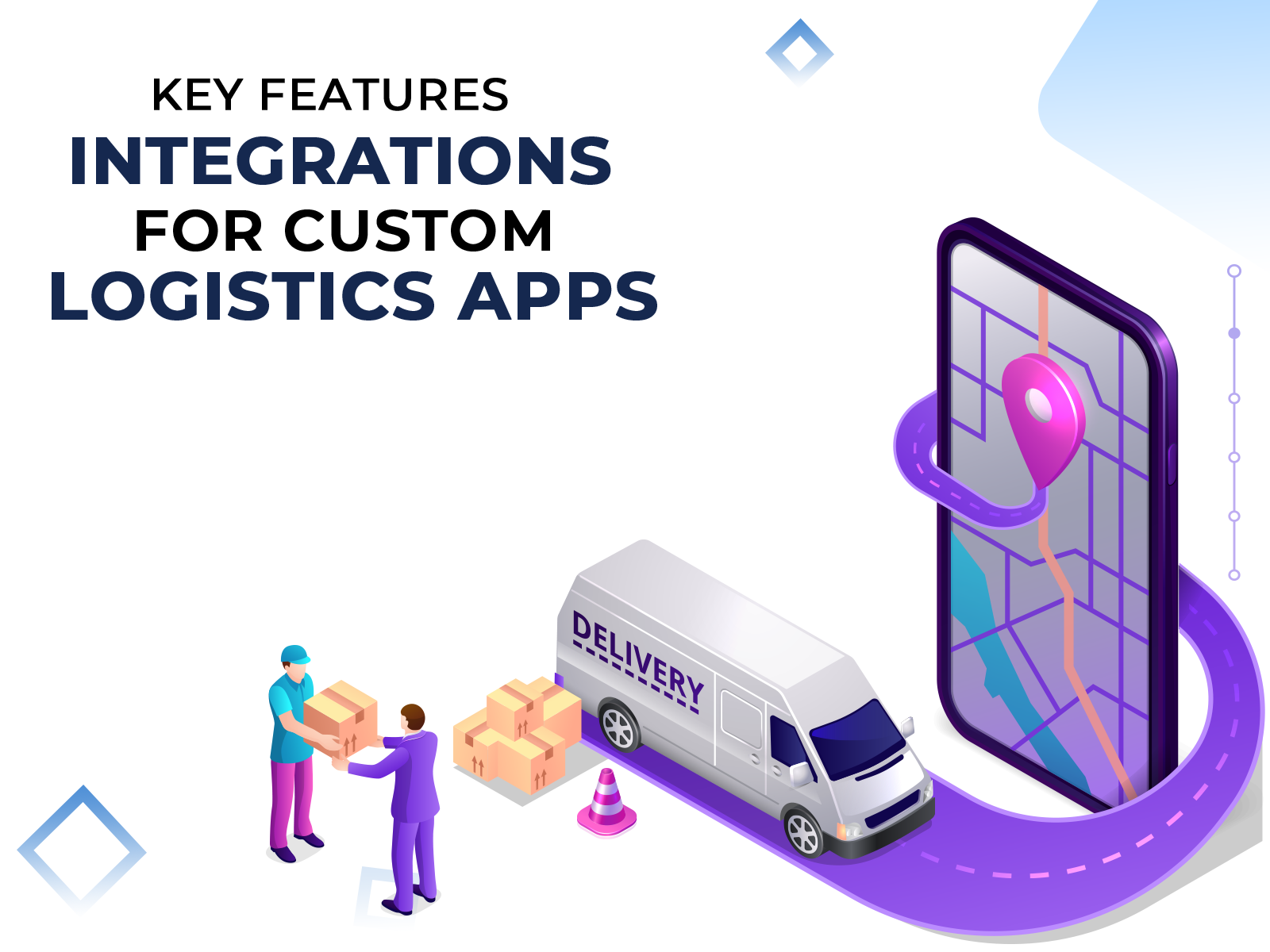Logistics automation refers to computer software that enhances the ability of supply chain management. Mainly it covers all the operations related to a distribution center or warehouse with larger tasks conducted by enterprise resource planning system. Few instances of such operations are outbound transportation, warehousing, order fulfillment, demand planning, inbound transportation, fleet management, materials handling, and inventory management.
Currently, all companies including logistics are adapting to new technology to improve their productivity scale. With custom logistics applications, companies can get tailored features as per their particular business requirements.
In fact, there are different types of logistics apps prevailing in the industry, such as;
- Crowd-shipping Marketplace: It helps in selecting cost-effective international delivery of items and transportation.
- Storage Marketplace: It unites the party who is looking for extra space with the one who actually has it.
- 3 PL Marketplace: It helps in outsourcing the services of a third-party logistics company for product distribution and material handling.
- Freight Marketplace: It helps the shippers to get the best mode to ship goods, delivery details, compare quotations, and online book the shipment.
- Local Delivery Marketplace: It helps in connecting local shoppers, retailers, and drivers to execute same-day delivery.
- Trucking Marketplace: It unites the shippers and truckers on a single platform to access their location, available trucks, and freight quotes.
Let us understand some of the key features and integrations to consider while developing logistics software.
1. LOGISTICS AND SHIPPING API INTEGRATION
Collaborating with logistics and shipping APIs enables the business to connect with famous carriers, track packages, buy labels, and put customs details into shipments.
To illustrate, tracking and shipping APIs offered by EasyPost offer estimated delivery dates, branded tracking pages, real-time updates, real-time feedback on the carrier, and data tracking.
2. CUSTOMER CARE SOFTWARE
This feature will let your logistics marketplace handle all the important information within the single platform, develop reports, organize customer satisfaction surveys, and build benchmarks.
For instance, ZenDesk is an advanced customer care application that provides features such as powerful reports and metrics, a customer-facing web interface, a ticketing system to get requests, messaging and chat system, and around 100 third-party collaborations.
3. REAL-TIME INVENTORY MANAGEMENT
As the name suggests, this feature will aid in tracking product movement, improving supply chain management, and boosting business efficiency. Further, this attribute will help in optimal scheduling of raw materials or goods, analyze data, and eradicate both excessive inventory and stock-outs.
For example, an online retailer can work out for seasonal incline in demand for particular products based on previous data analysis.
4. GPS TRACKING SOFTWARE
This makes the user self-dependent in keeping a track of their shipment delivery time and freight in real-time. Such features alert you in case of any issue.
To illustrate, KeepTruckin gives several features for this marketplace including GPS tracking, fuel tax reporting, driver scorecards, vehicle diagnostics, log auditing, messaging, idle time tracking, etc.
5. SECURITY INTEGRATION TOOLS
Security is paramount in the logistics industry and security solutions must be integrated to ensure the safety of transactions in the marketplace. The other features offered by such tools are identity verification, checking of national criminal records, global watchlist check, checking of sex offender registry, screening status, sharing reports with the team, 24/7 support, criminal classification, reporting & analytics, and so on.
One of such security tools in the logistics market is Sift Science that lets you detect spammers, fraud, scammers, expand your user base, etc.
6. INSTANT MESSAGING APIs
For managing a logistics business successfully, having customer interaction is very important. This can be implemented with an instant chat/messaging API that will build up customer satisfaction with suitable chat messaging features.
To understand more, TalkJS is one such chat messaging tool that offers eMail and SMS fallback, single conversation view, dashboard, activity history, real-time messaging, complete conversation history, customizable design, and notifications.
7. AUTOMATED INVOICE PROCESSING FEATURES
The logistics companies can incorporate automated invoicing functions in the marketplace to save time, go paperless, improve the delivery of documents and invoices, and optimize data accuracy.
This basic functionality can be implemented by all the sub-sectors of the logistics industry that issue invoices to their clients for payments. The developers can either get their invoicing features tailor-made or they can amalgamate with any third-party invoicing solution provider by using an API.
8. PREDICTIVE ANALYTICS
Shippers use the predictive analytics functionality to attain different purposes like predictive maintenance, risk management, route optimization, demand & capacity planning, network management, and so on.
For example, Amazon applies sophisticated predictive analytics software to sometimes deliver goods even before the order has been placed.
9. MULTILINGUAL SUPPORT FOR DRIVERS
Since drivers belong to different origins and regions, they may happen to have linguistic hurdles during their route. It is essential to have complete sync with the drivers so that they can work in a harmonious way. For this, getting linguistic support is necessary.
Multilingual software tools help the drivers to interact with others more confidently, freely, and this way they can earn your trust.
10. TIMELY DRIVER INFORMATION
Since logistics and supply chain management revolves around the acts of delivery and transportation, hence drivers are the key players in this scenario. Handling your driver’s whereabouts is important in making this process more effective and efficient.
To implement this, a daily log of the driver must be kept to understand how the business is functioning. Also, it helps in eradicating the non-functional units with the functional ones. This helps in reducing human intervention and any kind of tampering.
CONCLUSION
Logistics applications are important for a business in increasing accuracy, reducing paperwork, managing fleet efficiently, saving time, and improving the ability to handle inventory in a more effective manner. The above-mentioned features and integrations can make an effective custom logistic app that is important in today’s transparent and highly digitized world.

